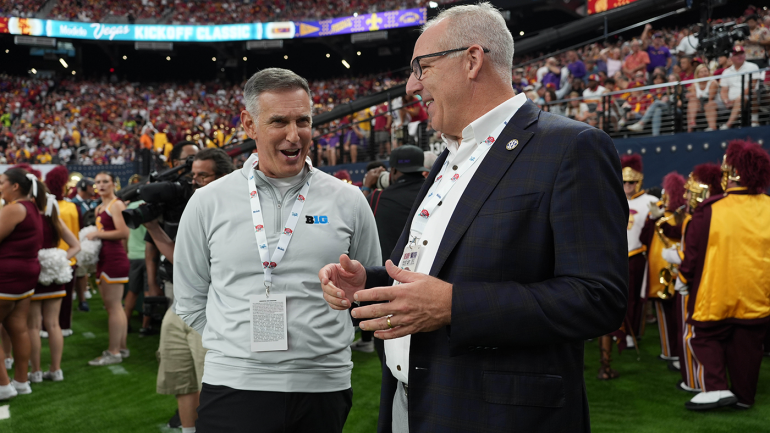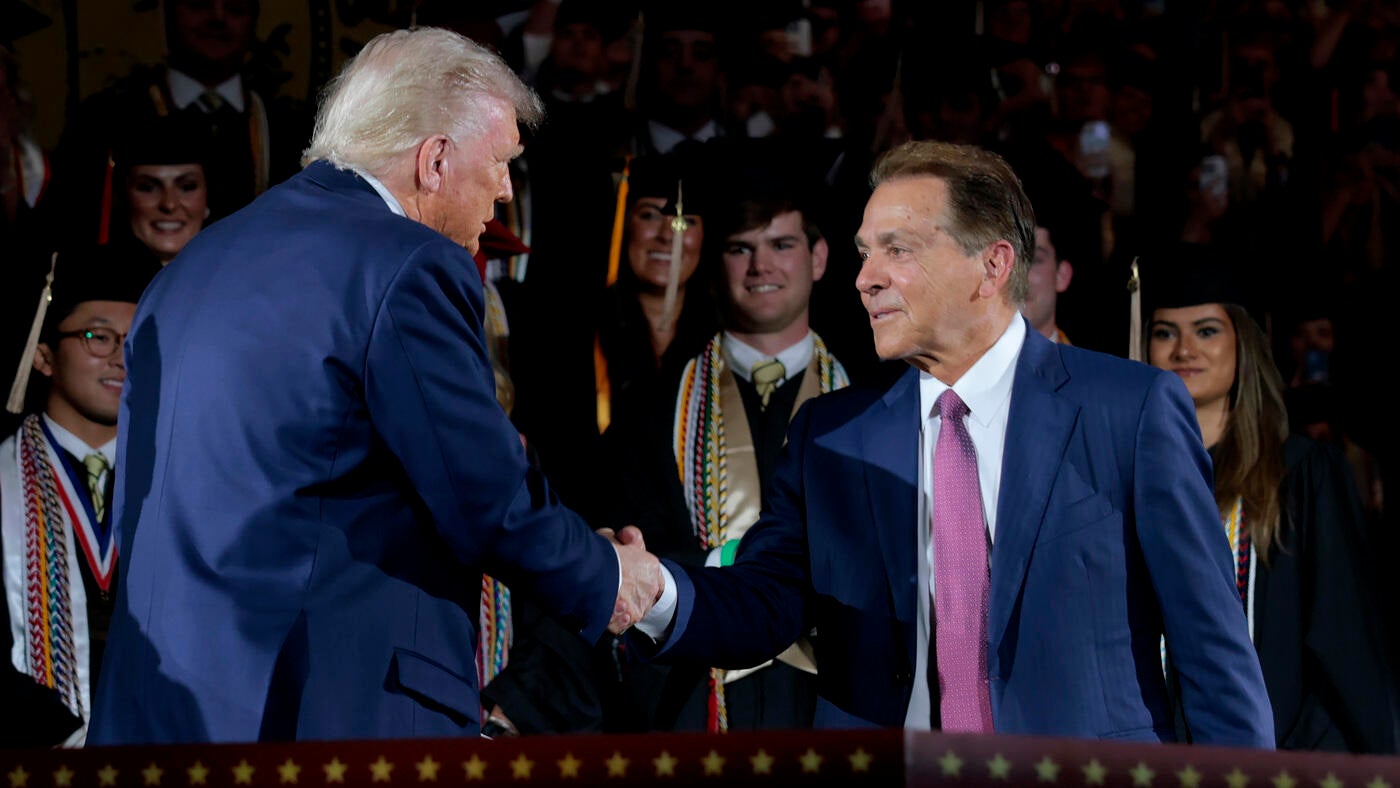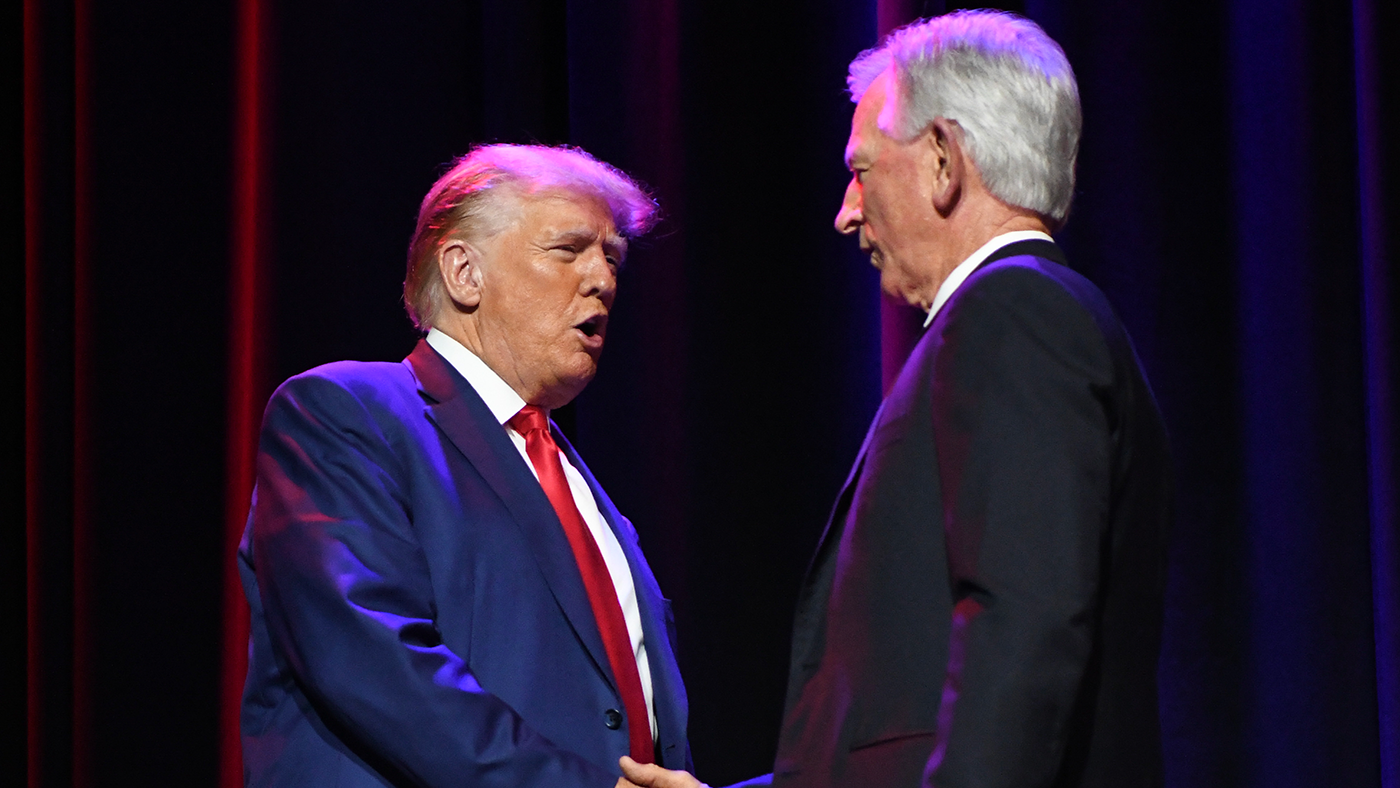

Days after gaining traction, President Donald Trump has paused the formation of a presidential commission on college athletics.
The White House’s decision was made Wednesday morning after conversations with lawmakers, including U.S. Sen. Ted Cruz (R-Texas), who suggested the commission’s work be sidelined as they seek co-sponsorship on Cruz’s long-developing bill to regulate college athletics, sources told CBS Sports. The presidential commission could return within the next 90 days, though no promises from the White House have been made, sources said.
Confidence that the commission focused on regulating college sports would gain bipartisan support was waning, and the Big Ten and SEC, the two most powerful conferences in college athletics, opposed commission leader Cody Campbell’s notions behind the scenes, according to multiple sources familiar with the situation. One high-ranking official told CBS Sports this week their nightmare was seeing Campbell arm-in-arm with Trump and completely reversing the years of work that have gone into supporting a new era of college sports that is expected to soon allow universities to pay their athletes directly. The White House was also convinced to sideline the commission because of the full docket Trump faces: trade disputes, the Russia-Ukraine war and the economy.

The presidential commission also faced opposition on the ground, sources told CBS Sports. Campbell’s public push to pool conferences’ media rights to help smaller leagues facing financial trouble was of great concern to the Big Ten and SEC, the two richest conferences in the country. Sources within those conferences believed Campbell’s primary goal was to prop up Texas Tech, his alma mater, the Big 12 and smaller Group of Five schools at the expense of what the Big Ten and SEC are trying to accomplish. The two richest and most powerful conferences had zero desire to see any of their hard-earned money be redirected to the New Mexicos and UTEPs of the world just because it might benefit the system.
Campbell criticized the two conferences’ stranglehold on amateur athletics and their efforts in Washington, D.C., seeking legal protections that would mostly favor them and lead to smaller conferences crumbling under financial burden. The power conferences and the NCAA have spent millions on lobbying efforts in Capitol Hill over the last four years.
“The NCAA is broken, but handing the keys to a few fat cats is worse,” Campbell wrote in March. “America thrives on competition, not cozy cartels blessed by D.C.”
The seed for Trump’s presidential commission was planted May 1 when Trump visited the University of Alabama to speak at a commencement ceremony. It’s there he met with former Alabama coach Nick Saban, and the two discussed college athletics and the unwieldy world of NIL. Campbell, the chairman of Texas Tech’s board of regents, was put in charge of the commission and actively sought input from college leaders and was recently recruiting members to serve, including Saban. The legendary former Crimson Tide coach spoke several times with Campbell, and the two met in person to discuss a leadership role, sources said.
Sen. Tommy Tuberville (R-Alabama), who accompanied Trump on his visit to Alabama, recently expressed doubt to CBS Sports that a federal legislative solution would emerge, instead putting his hopes in what Campbell and Saban could accomplish together with a commission.
“I think Nick and Cody can get something done along with President Trump’s power,” Tuberville told CBS Sports last week. “You’re not going to get six votes in the Senate, so [Trump is] going to have to say, ‘Look, this is what we’re going to do.'”
Campbell, a former Texas Tech football player who’s earned his wealth in the energy industry, has been heavily involved in the NIL space since 2022, when he founded The Matador Club, Tech’s NIL collective. He also has ties to Trump and Cruz, who he has financially supported via donations and fundraising events.
Meanwhile, Saban publicly questioned whether a commission was needed at the behest of those who didn’t want to see the commission gain traction, according to sources. Multiple Power Four sources told CBS Sports this week that Saban publicly distancing himself from the commission was helpful in slowing any progress.
“I know there’s been a lot of stuff out there about some commission or whatever. I don’t think we need a commission,” Saban said, according to Bama247. “I’ve said that before. I think we need — we know what the issues are, we just have to have people who are willing to move those and solve those and create some solutions for some of those issues. I’m all for being a consultant to anybody who would think that my experience would be beneficial to helping create some of those solutions.”
NCAA president Charlie Baker and ACC commissioner Jim Phillips voiced support for the commission last week.
“The fact that there’s an interest on the executive side on this, I think it speaks to the fact that everybody is paying a lot of attention right now to what’s going on in college sports,” Baker said. “I’m up for anything that can help us get somewhere.”

The varying opinions among the conferences reflect the battle lines that have formed between the richest conferences — Big Ten and SEC — and those fighting to remain financially competitive — ACC and Big 12. One side had expressed hope for the commission, while the other was wary of motivations.
The NCAA and its major conferences have been seeking antitrust legal protection from the government for the last four years since NIL payments were legalized across the NCAA. Officials want universal laws to govern NIL after more than 30 states have adopted laws with varying regulations. Administrators also want to codify language in the expected settlement of the landmark House v. NCAA antitrust case, allowing schools to pay players millions of dollars at their discretion for the first time in history, starting July 1.
With the presidential commission on the back burner, the conferences’ efforts again turn to Cruz and his colleagues as they attempt to move forward with a bipartisan bill. Lawmakers have previously proposed more than a dozen bills over the last several years, but none have advanced to Congress after stalling in committees. Within the Big Ten and SEC, Cruz has been viewed as the best hope to get a federal solution that delivers what they most desire.
Cruz said in January he hoped to pass a law to regulate the college athletics market in the current legislative session. Democratic senators Richard Blumenthal, Cory Booker and Jerry Moran are working on a bipartisan compromise with Cruz, ESPN reported in January. In March, Saban appeared alongside Cruz for a roundtable discussion on NIL at the Capitol.
A request to Sen. Cruz’s office for comment on his role in the pausing of the commission was not immediately returned.
This news was originally published on this post .








Be the first to leave a comment